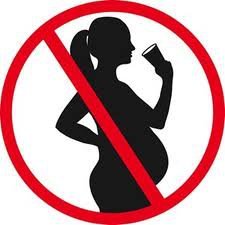
Alcohol effects on fertility, pregnancy and assisted reproduction treatments
Human fertility is a condition predetermined by genetic factors and, later modulated, by biological and social factors. The genetic and biological ones cannot be modified. With assisted reproduction techniques we have managed to overcome previously insurmountable barriers to obtain pregnancies in couples with different kind of problems.
But there are factors that can decrease fertility and can be modified. They are those related to habits, lifestyle and human behavior. Among them: eating habits that lead to obesity or anorexia, stress, sedentary lifestyle, coffee and general consumption of toxins.
Índice
Alcohol, fertility enemy
Alcohol is one of the most widely consumed substances. There are more and more studies that link alcohol consumption with decreased fertility in both men and women.
The possible repercussions are related to the consumption degree. High consumption is defined as the intake of more than 140g per week; low, the intake of less than 50g per week and moderate between 50 and 140g per week.
Mostly, women are more susceptible to the harmful effect of alcohol due to faster gastrointestinal absorption and slower metabolism through the enzyme alcohol dehydrogenase. Furthermore, this enzyme is expressed to a lesser extent in women.
It is estimated that a daily consumption of 2-3 alcoholic beverages (140g per week) in women multiplies the risk of infertility by 1.6. It is related to ovulation problems as hormonal regulation can be altered, leading to the achievement of a normal ovarian cycle. There is also a higher abortion rate and a worse perinatal prognosis if the consumption continues (premature births, low birth weight, foetal death and the so-called foetal alcohol syndrome, characterized by facial alterations, heart abnormalities, growth retardation, and psychomotor development disorders.
In men, there is no agreement on how much alcohol can cause infertility. It is clear that the higher the consumption, the more likely it is to produce a decrease in the production of testosterone and mature sperm. In more severe cases, decreased libido, impotence and testicular atrophy.
Most studies have shown a decrease in fertility in the high-consumption group, especially in women. The results in the rest of the groups are not conclusive.
On the other hand, there may be associated factors that also cause a decrease in fertility, such as the consumption of alcohol and tobacco so frequently combined.
In experimental animals, it has been observed that alcohol produces an increase in estrogen levels, said increase would slow down the production of FSH (pituitary hormone that intervenes in the formation of follicles in the ovary).
Alcohol consumption and in vitro fertilization
Studies results on assisted reproduction treatment observed that in women who drank alcohol, the number of oocytes collected was lower, the pregnancy rate is lower and the abortion rate higher. In men it was associated with abortions and a lower rate of child born. Some studies mentioned that the treatment results may be worse where the consumption was recent.
This is why many working groups recommend not drinking alcohol when undergoing fertility treatments.
Obviously, there are many important factors that can come together in a person and are related to infertility. Some of them are immovable such as age or genetic inheritance, others are unknown, but others depend on our habits and our lifestyle and we can modify them.
Alcohol effect during pregnancy

Did you know that when a pregnant woman drinks, alcohol passes to the foetus through the placenta and the baby metabolizes alcohol much more slowly than the mother, its concentration in blood is also higher and for a longer time, which causes damage to the brain and alterations in the nutrition of foetal organs?
Foetal alcohol syndrome (FAS) affects 1.9 out of every 1,000 live births and 11% of the pregnant population is made up of drinkers; for this reason, on the day against alcohol we want to remember the serious damage it can cause in the future child the fact of being exposed to alcohol before birth:
- Central nervous system alterations: delayed maturation, neurological and facial abnormalities, as well as intellectual impairment.
- Reduced weight and height in the child until maturity.
- Alterations in ocular, auditory, skeletal, hepatic, cardiac development, etc.
- Higher incidence of abortions in the first and second trimesters.
- Coordination, learning, emotional and behavior problems.
- Children with FAS also have distinctive physical features: small eyes, a thin upper lip, and smooth skin instead of the normal furrow between the nose and the upper lip.
There is no proven safe level of alcohol consumption during pregnancy. “According to the US Office of Public Health and Science, the patterns of alcohol consumption that put a baby at the greatest risk for FASD are drinking large amounts in a few hours and drinking seven or more drinks per week. However, FASDs can also occur in the babies of women who drink less. “
Remember that alcohol is also transmitted during breastfeeding, so it will have to be avoided.
Dr Lydia Luque, gynaecologist at Instituto Bernabeu.
